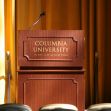Johns Hopkins University and the California Institute of Technology (Caltech) have agreed to pay a combined $35.2 million to settle claims that they gave preferential treatment to wealthy student applicants, in violation of U.S. antitrust laws. The settlements, disclosed in a court filing on Friday, bring the total amount recovered in the lawsuit to nearly $320 million.
The 2022 lawsuit, filed in federal court in Chicago, alleges that 17 prestigious universities breached a pledge to admit students without considering their financial status. This "need-blind" admissions policy, the plaintiffs argue, was circumvented when schools allegedly used wealth indicators like donation history to prioritize certain applicants.
Under the latest agreements, Caltech will pay $16.7 million, while Johns Hopkins will contribute $18.5 million. These settlements follow earlier agreements with institutions like Brown, Yale, and Columbia universities, which together settled for $62 million.
“The fact and amount of these settlements bear out our allegations,” said Ted Normand, an attorney for the students. “Our goal now is to show that the remaining defendants are liable for the rest.”
Despite the settlements, all of the universities involved have denied any wrongdoing. Caltech reaffirmed its commitment to socioeconomic inclusivity, stating, “We are unwavering in our commitment to ensure that a student’s socioeconomic status is not a barrier to a Caltech education.”
Cornell University, the University of Pennsylvania, Georgetown University, the Massachusetts Institute of Technology (MIT), and Notre Dame remain as defendants in the case. Cornell issued a statement defending its admissions process, emphasizing that it admits students based solely on qualifications and provides competitive financial aid packages. Similarly, Notre Dame said it will continue to defend itself, asserting the lawsuit lacks merit.
The lawsuit also accuses schools of maintaining special admissions lists that prioritized applicants based on familial wealth and donation history. While the universities have challenged the plaintiffs’ estimates of damages as unreliable, the settlements thus far reflect a significant acknowledgment of the allegations’ potential impact.
The settlements await approval from the federal court in Chicago, and further developments in the case could set significant precedents for financial aid practices at elite universities nationwide.






